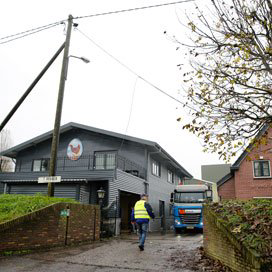HPAI in the Netherlands: 150,000 birds culled

An outbreak of highly pathogenic avian influenza (HPAI) has led to the culling of 150,000 layers on a farm in the west of the Netherlands. In addition, a poultry transport ban of three days has been put in place.
The outbreak was confirmed on Saturday, November 15, near the village of Hekendorp, roughly 50 km south of Amsterdam. The infection was confirmed after some birds had developed disease, after which samples were sent for testing on Friday. On Saturday avian influenza (H5) was confirmed, one day later it became clear the strain was highly pathogenic as well (H5N8).
Standstill
On Sunday, the Netherlands Ministry of Economic Affairs, which includes Agriculture, announced a temporary 72-hour transport standstill for poultry, eggs, poultry manure and used bedding for the whole of the Netherlands. In addition, in a 10 km radius zone around the poultry farm the ban will even last up to 30 days. In this area there are 16 additional poultry farms. Visitors are not longer welcome and last but not least, all poultry have to be kept indoors.
Two farms in the immediate surroundings of the farm are currently being scrutinised – first results of these testings are expected on Monday.
The ministry states in a letter: “The coming days are targeted to figure out the origin and transmission of the virus and prevent further spread.”
The standstill effectively means that poultry processors will not be able to be in operation until Wednesday. In addition, many breeding eggs cannot be transported. So far it is unclear what could be the financial consequences of this standstill.
Nevertheless, the Dutch bureau for retail trade (CBL) does not predict a shortage of products that require poultry ingredients. Retailers are expected to have plenty of stocks to continue the supplies to consumers.
Surprise
Poultry producers in the Netherlands are both surprised and shocked by the sudden outbreak of what is considered a dangerous strain. Remarkably, the strain was discovered on a farm with only indoor poultry. Low-pathogenic AI outbreaks are sometimes seen on farms keeping birds partly outdoors – where they can contract the virus through manure from wild birds.
In the area where the virus has been discovered, relatively few poultry farms can be found. This makes the chance for further infection smaller than in 2003, when avian influenza hit the key poultry zone in the heart of the Netherlands.
The same highly pathogenic variant of avian influenza (H5N8) was also discovered in Germany earlier this month. In that case, a turkey farm near the village of Greifswald in the north east of the country was affected.
Avian influenza is a zoonosis, which means that in rare cases, the HPAI strain could also affect humans, in those cases when there is direct and intensive contact with infected poultry. In their case it will lead to mild form of influenza.













